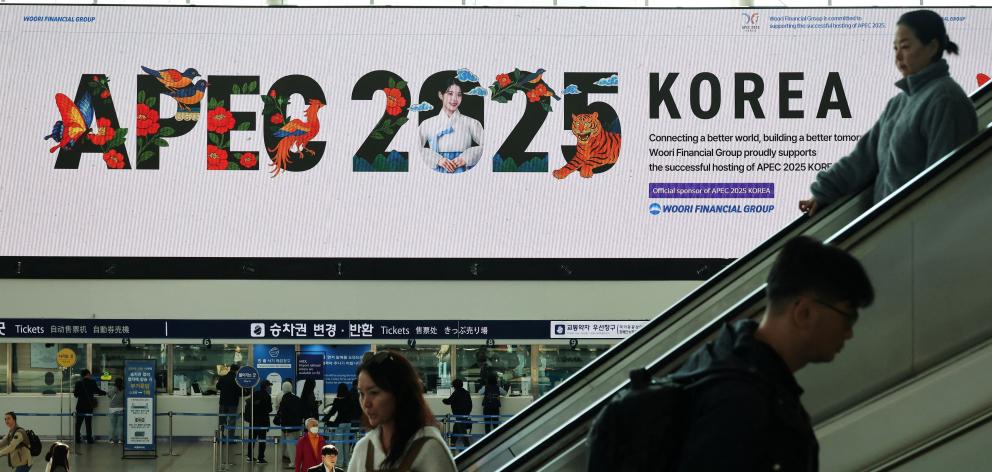Politics
Luxon Engages in Key Diplomatic Summits Across Asia

New Zealand Prime Minister Christopher Luxon is embarking on a significant diplomatic mission in Asia, attending both the East Asia Summit (EAS) in Malaysia and the Asia-Pacific Economic Cooperation (APEC) leaders’ meeting in South Korea. These summits, scheduled just days apart, offer Luxon a unique platform to enhance New Zealand’s relationships with Asian counterparts and engage in substantial discussions on pivotal issues.
The EAS commenced in Kuala Lumpur on October 30, 2023. This year’s gathering coincides with the 50th anniversary of New Zealand’s diplomatic ties with the Association of Southeast Asian Nations (ASEAN). The summit will feature a special commemorative event acknowledging the successful partnership that emerged following the Vietnam War. The EAS format integrates the ten ASEAN member states with eight additional nations, including Australia, China, India, Japan, New Zealand, Russia, South Korea, and the United States.
New Zealand has consistently maintained a bipartisan approach to its engagement with ASEAN, ensuring that both political parties prioritize stable and cooperative relations. In his two years in office, Luxon has visited six ASEAN member countries, reflecting a commitment to fostering connections in the region. While security was the initial focus of New Zealand’s relationship with ASEAN, economic ties have since taken precedence. Currently, ASEAN nations rank as New Zealand’s fourth-largest trading partner, with strong trade relationships particularly with Singapore and Indonesia.
The growth of New Zealand’s exports to ASEAN has surged, surpassing $NZ10 billion for the first time, marking a one-third increase since 2021. Key contributors to this export boom include dairy products, fruit, and meat. Additionally, as Southeast Asia’s middle class expands, services exports, particularly in tourism, are also on the rise, now accounting for one-fifth of total exports.
ASEAN countries represent New Zealand’s largest source of imports, totaling almost $19 billion, outpacing imports from China. This increase has been accelerated by the closure of New Zealand’s Marsden Point oil refinery in 2022, leading to a shift in fuel imports from Asia. Investment ties also remain robust, with Singapore recognized as the second-largest source of foreign investment in New Zealand. Recently, Singaporean Prime Minister Lawrence Wong visited Auckland to finalize a Comprehensive Strategic Partnership with New Zealand.
The EAS gathering also marks the 20th anniversary of this diplomatic forum. The inaugural meeting in 2005 featured Russian President Vladimir Putin. This year, Putin is reportedly interested in attending the Kuala Lumpur summit, alongside leaders such as Chinese Premier Li Qiang and Indian Prime Minister Narendra Modi. Notably, US President Donald Trump is expected to participate, contingent upon the potential signing of a peace deal between Cambodia and Thailand.
Following the EAS, Luxon will travel to Gyeongju, South Korea, for the APEC leaders’ meeting, which begins on October 31, 2023. This summit will include many of the same leaders but will also feature representatives from Taiwan, Canada, Chile, Mexico, and Peru. APEC provides New Zealand with a vital connection to Latin America, a region that has been relatively underserved by Wellington’s foreign policy. Notably, a new 29-hour flight by China Eastern Airlines will soon connect Shanghai and Buenos Aires, creating a direct link through Auckland.
At APEC, a significant sideline meeting between Trump and Chinese President Xi Jinping is anticipated, marking a crucial opportunity for both leaders to negotiate potential resolutions to ongoing trade tensions. Trump has indicated intentions to finalize a “fantastic deal” that could impact not only the US-China relationship but also have ripple effects across the Asia-Pacific economy.
For New Zealand, a trade truce between the US and China would be particularly beneficial, as the nation relies heavily on China as its largest trading partner. Conversely, the recent imposition of 15% tariffs on New Zealand goods by the US—a rate higher than that of Australia—has raised concerns for Luxon. He aims to address these tariff issues directly with Trump during their time at APEC.
As New Zealand seeks to bolster its economic standing amidst fluctuating global markets, the coming week promises to be pivotal for Luxon. With ambitious goals on the table and a full agenda, the Prime Minister will engage in high-stakes discussions that could shape New Zealand’s foreign trade strategy for years to come.
-

 World3 months ago
World3 months agoTest Your Knowledge: Take the Herald’s Afternoon Quiz Today
-

 Sports3 months ago
Sports3 months agoPM Faces Backlash from Fans During Netball Trophy Ceremony
-

 Lifestyle3 months ago
Lifestyle3 months agoDunedin Designers Win Top Award at Hokonui Fashion Event
-

 Sports3 months ago
Sports3 months agoLiam Lawson Launches New Era for Racing Bulls with Strong Start
-

 Lifestyle3 months ago
Lifestyle3 months agoDisney Fan Reveals Dress Code Tips for Park Visitors
-

 World3 months ago
World3 months agoCoalition Forms to Preserve Māori Wards in Hawke’s Bay
-

 Health3 months ago
Health3 months agoWalking Faster Offers Major Health Benefits for Older Adults
-

 Politics3 months ago
Politics3 months agoScots Rally with Humor and Music to Protest Trump’s Visit
-

 Top Stories3 months ago
Top Stories3 months agoUK and India Finalize Trade Deal to Boost Economic Ties
-

 World3 months ago
World3 months agoHuntly Begins Water Pipe Flushing to Resolve Brown Water Issue
-

 Entertainment3 months ago
Entertainment3 months agoExperience the Excitement of ‘Chief of War’ in Oʻahu
-

 Science3 months ago
Science3 months agoNew Interactive Map Reveals Wairarapa Valley’s Geological Secrets









